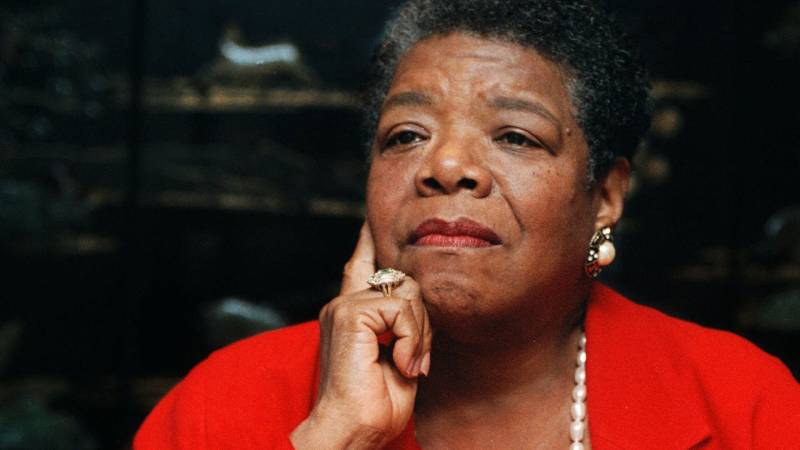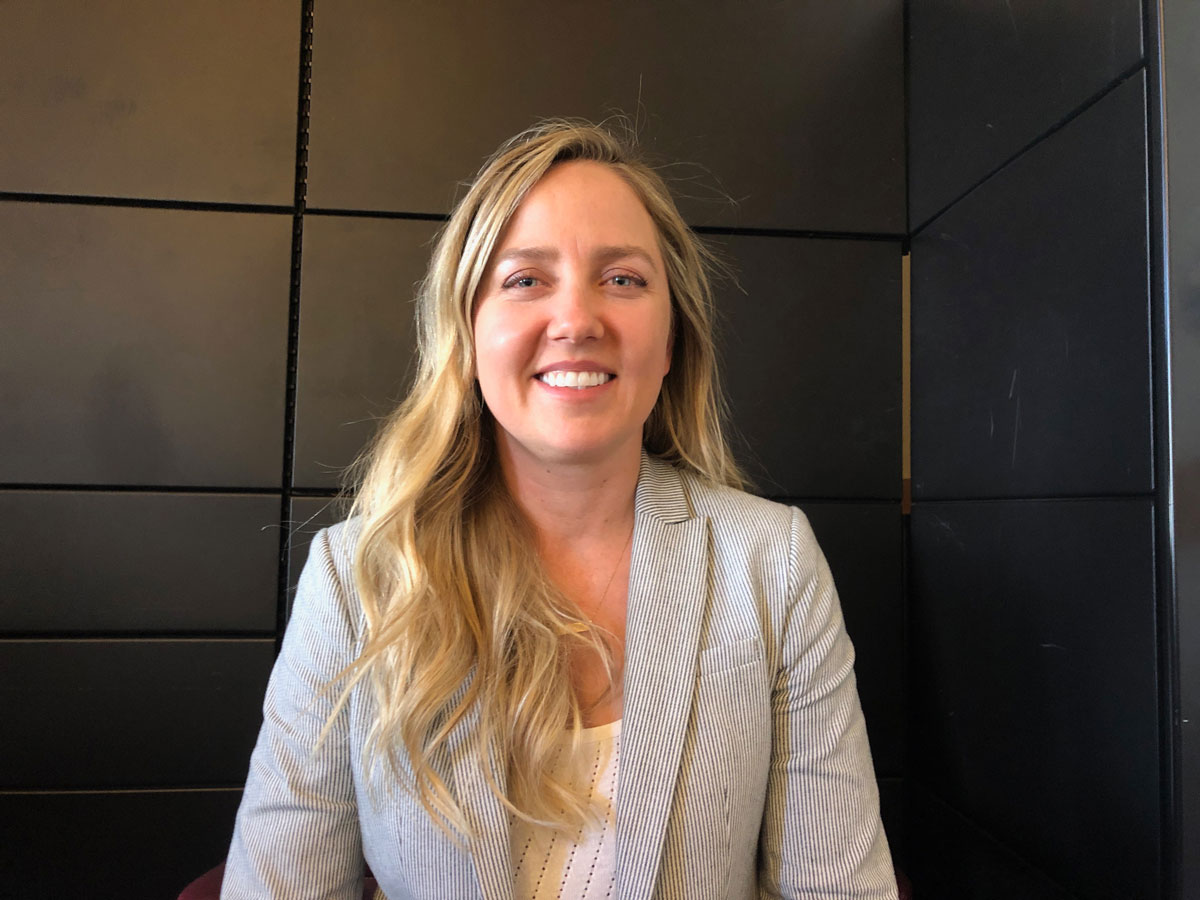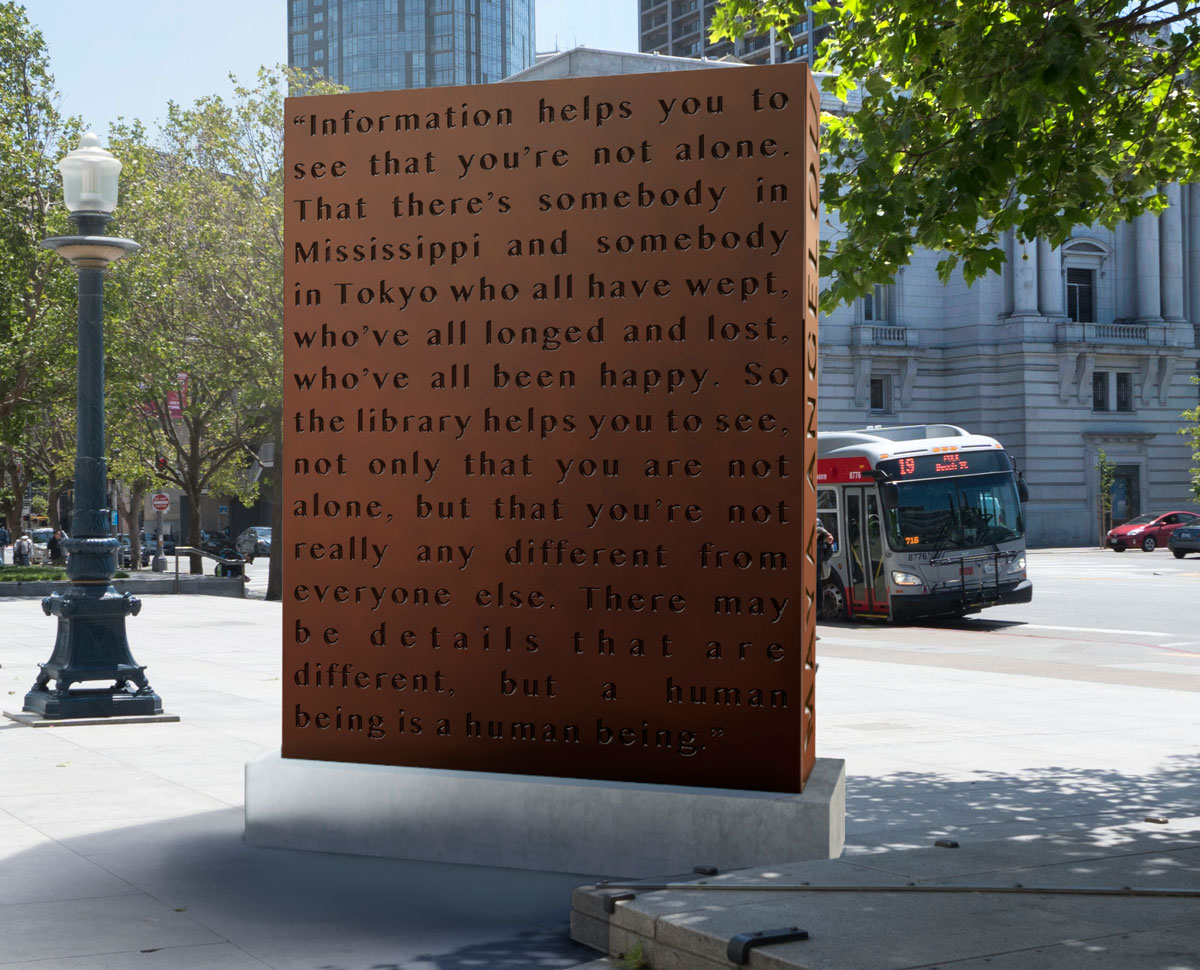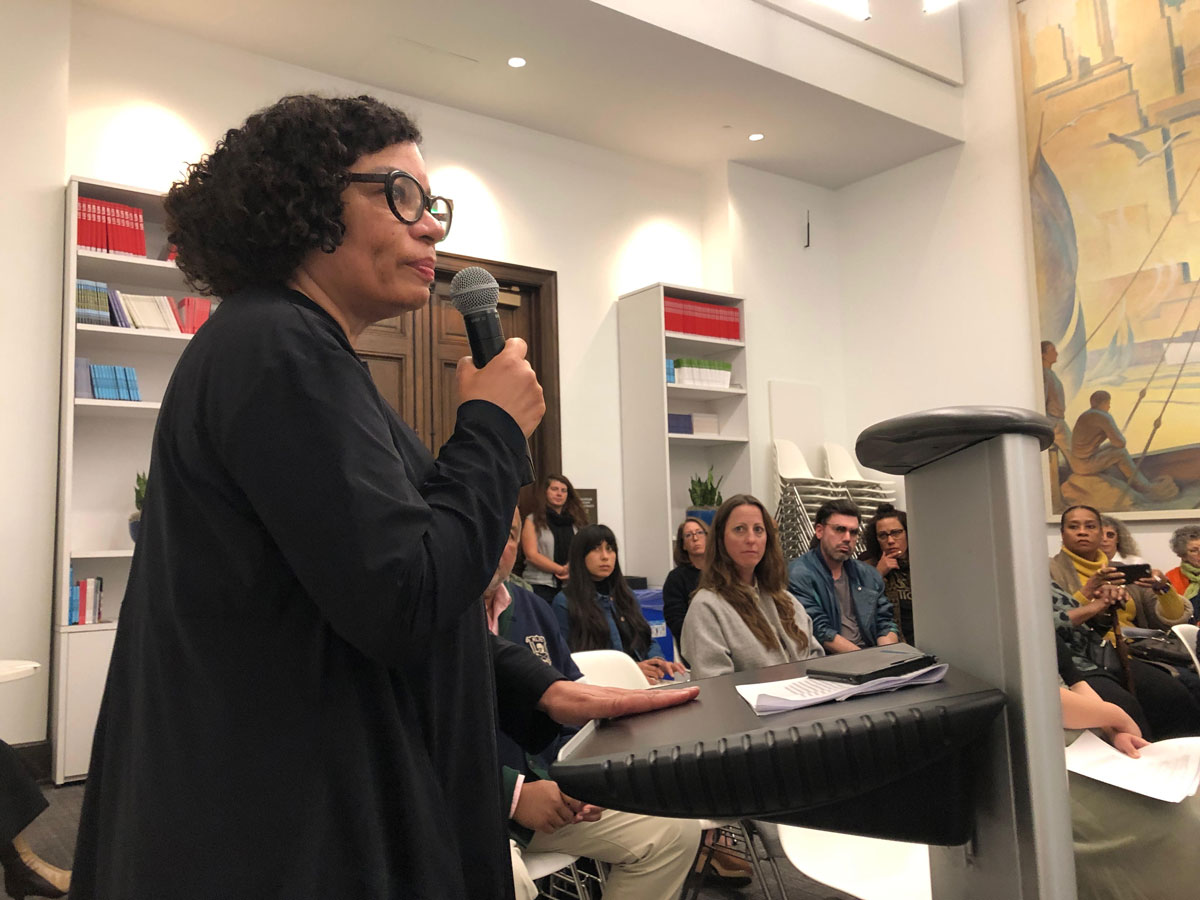Shortly after the inauguration of Donald Trump, Margaux Kelly was looking for an antidote to the anger she felt about the president’s attitudes towards women.
San Francisco's Search for a Maya Angelou Monument is Back at Square One

“My colleague and I came up with the idea of adding art pieces to the civic art collection,” said Kelly, who at the time was a young aide to then-San Francisco city supervisor Mark Farrell. “We wanted to help add additional female representation in the public realm.”
Their effort is taking off again as the San Francisco Arts Commission (SFAC) reboots a plan to erect a statue honoring Maya Angelou in front of the main branch of the public library. On Friday, Jan. 24, the SFAC issued a Request for Qualifications inviting artists to submit proposals for a sculpture honoring Dr. Angelou. Specifically, a “3-dimensional statue depicting Dr. Angelou.”
The move comes three months after city officials ordered the commission to start the process over again from scratch for failing to deliver an artwork that met their expectations, upsetting many in the local arts community in the process.
Kelly said it was former U.S. Treasurer Rosie Rios’ efforts to put women on U.S. currency that originally inspired her to launch the initiative.
“Every image that I came across of a woman was an allegorical woman,” Rios said in a 2017 TED talk on the topic. “It wasn’t a real woman. Kind of Lady Liberty. Or women in togas. Or sometimes no togas. But every image that I came across of a man was a real man.”

Kelly and her colleague learned there are nearly 90 statues of nonfictional men scattered across San Francisco’s public spaces, compared to just three of women.
So they drafted legislation to change that.
The plan was to increase the number of women honored with things like monuments and street names by 30 percent before the end of 2020—the 100th anniversary of the passage of the 19th Amendment, guaranteeing and protecting women’s constitutional right to vote. (The ordinance no longer specifies 30 percent representation on city property by 2020; that number is now an ongoing goal.)
The first woman they wanted to honor with a statue was writer and activist Maya Angelou.
Kelly says Angelou was the perfect fit for their ambitious first project. “She lived in San Francisco and she was the first African-American streetcar conductor here,” she explained.

It was also fitting that the statue was planned for outside the main branch of the San Francisco Public Library, which Angelou loved to frequent.
The city’s arts commission sent out a call to artists late last year. By early August, a selection panel had whittled more than 100 proposals down to just three. The front runner was a nine-foot-tall bronze book with Angelou’s face etched on the cover, designed by Berkeley-based artist Lava Thomas.
But in a rare move, the city turned that proposal down.
Kelly says that’s because it wasn’t a statue in the traditional sense.
“We wanted a piece of art, but we also wanted to make a political statement,” said Kelly. “The statue portion of it was important to us. And the understanding was that the end art piece would be a female figure that you could recognize was a female figure from afar.”
In fact, the word “statue” was written into the original legislation. This was changed after the city’s arts commissioners said the language was too restrictive.

“We wanted to provide artists with an opportunity to portray Maya Angelou and other women in the future in more contemporary and creative ways,” said arts commissioner Dorka Keehn of the language change.
But at a public meeting in mid-October, Supervisor Catherine Stefani, who worked with Kelly and her colleagues on pushing the enabling legislation through, told a room full of grim-faced arts professionals that nothing short of an actual statue of Maya Angelou would do.
“As I carry the legislation across the finish line to elevate women in monuments, I wanted to do it in the same way that men have been historically elevated in this city,” Stefani said.
Many of the people present at the meeting that day, including artist Lava Thomas, were angered by the decision. They questioned the motives behind it (someone called them “shady”) and said women should be honored differently.
“I can’t believe that a conservative statue in the manner of European figurative traditional monuments, that Confederate and colonial monuments are based on, that we are here discussing this in this city, San Francisco, that’s known for being progressive in every way,” Thomas said. “Come on, people!”
Then there are those who don’t think it’s worth building monuments at all. When KQED asked people on social media what they thought, many said they would rather see the city work to get women equal pay.
With the arts commission issuing a fresh callout to artists for the Maya Angelou monument, on what is SFAC head Tom DeCaigny’s last day on the job after stepping down, the project schedule starts over. The full arts commission is scheduled to approve panel recommendations by July 2020.

